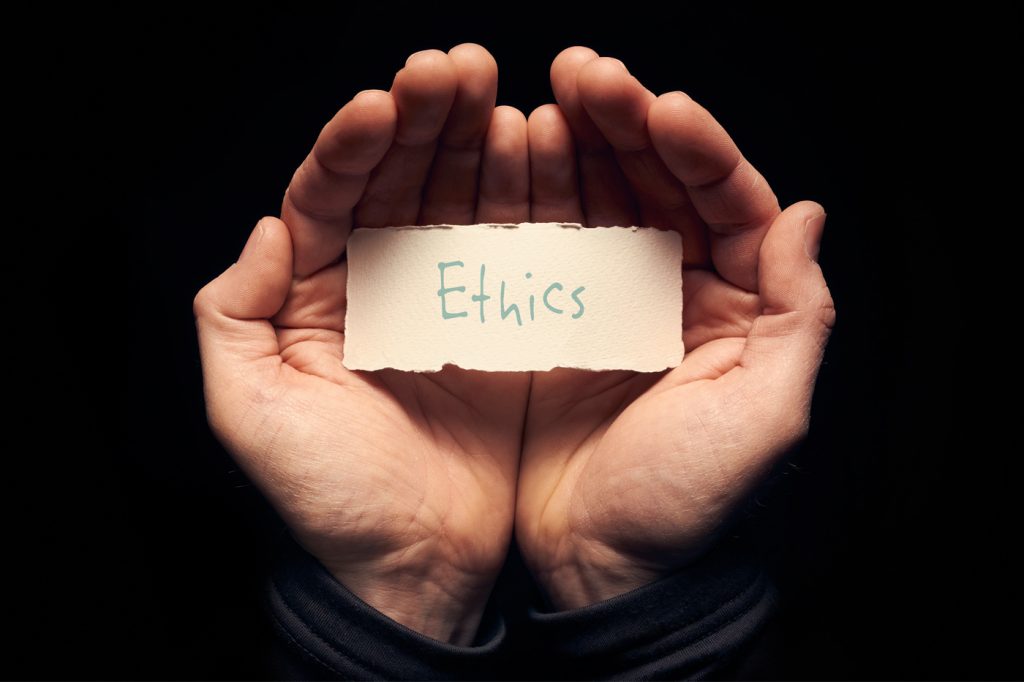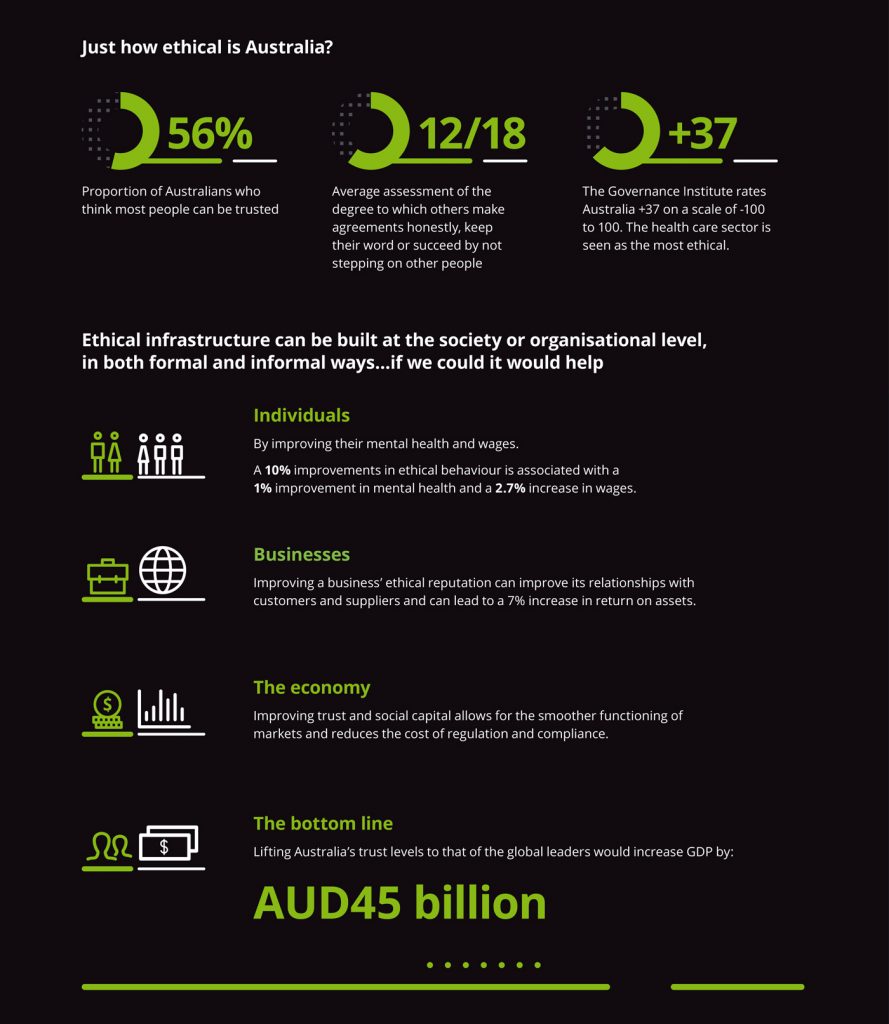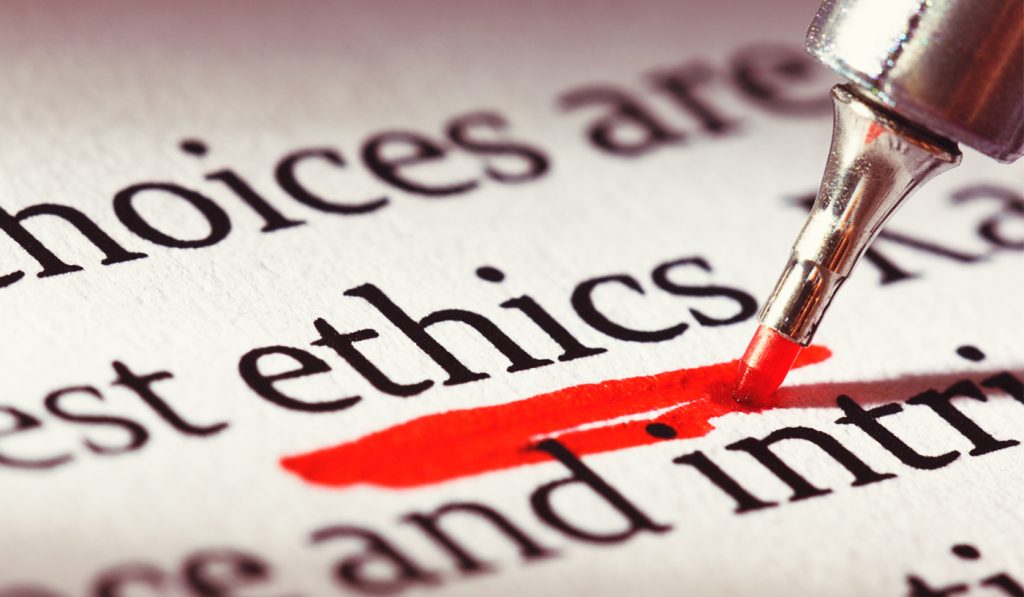The Ethical Advantage: The Economic and Social Benefits of Ethics to Australia
Numbers show that choosing what’s right is really the best.
Numbers show that choosing what’s right is really the best.

By The Ethics Centre
At the dawn of the third decade of this century, Australia faces significant challenges – navigating the health and economic impacts of the Covid-19 pandemic, responding to emerging issues around the future of work and introduction of new technologies, preparing for an increasingly risky geopolitical environment and addressing long-standing social and environmental challenges, including climate change and reconciliation with Indigenous Australians.
Addressing these issues will require effort from many organisations, businesses, community groups and government bodies, and will draw on a range of competencies and technical skills. Inevitably, we will need to make some ‘big decisions’ – and this will require leadership of a quality that enables society to cohere in the face of external and internal pressures that would otherwise cause divisions. In these circumstances, trust will be at a premium – especially for key institutions. In turn, this will depend on the quality of ethical decision-making by individuals, groups and organisations.
There remains significant scope for Australia to lift our levels of ethical behaviour and trust. In 2019, Australia was rated as being only ‘somewhat ethical’, achieving an index score of 37 on the Governance Institute of Australia’s -100 to 100 scale, four points down on the result two years earlier. The banking sector, which all Australians rely on, was considered the most unethical industry.
When asked whether people keep their word or make agreements honestly, everyday Australians say ‘yes’…but do not hold this view with great confidence – with an agreement score of around 12 out of 18 on the Household, Income and Labour Dynamics survey. According to the World Values Survey, just 54% of Australians state that they generally trust other people they interact with. While this might be a higher score than achieved by many countries, including the USA and UK, the Australian score is 10 percentage points behind the world leader.
In some respects, Australia’s relative ethical performance is no surprise. A steady stream of state and federal political scandals has eroded trust. Royal Commissions have uncovered unconscionable behaviour in religious and other institutions, widespread misconduct in the banking, superannuation and financial services industry, and most recently, alarming activities relating to aged care quality and safety.
Australia’s uneven ethical performance is also evident in corporate culture. A 2018 review found that while almost all ASX200 companies disclosed a code of practice, only 6% had leading practice. The rest were either infrequently updated or had little CEO buy-in; two-thirds did not contain even five of 13 recommended topics.
While few would argue a higher level of ethics in individuals or institutions is a bad thing, articulating the benefits of stronger ethics is more challenging. For this reason, The Ethics Centre commissioned Deloitte Access Economics to develop a framework to quantify the benefits of a more ethical Australia: how, and by how much, would individuals, businesses and the economy be better off were Australia to have, say, the best ethical performance in the world? This project is not intended to reduce ethics – the very question of what is right and wrong for us as humans – to a mere dollars-and-cents business case, but rather to put a financial analysis alongside the moral case for change, in order to strengthen it.
Reviewing many data sets, research sources and performing three new types of economic modelling, the results are in:
+ Individuals would benefit from improved mental and physical health, avoiding the costs associated with the ‘moral injury’ caused by unethical decisions. Consistent with this, the impacts are larger for mental than physical health with a 10% improvement in individual perceptions of others’ ethical behaviour associated with a 1% improvement in perceptions of their own mental health. The Productivity Commission estimates an AUD130 billion cost associated with diminished health and reduced life expectancy for those living with mental ill-health. Even a 1% improvement in mental health outcomes could have significant implications for the economy and individual well-being.

+ There is also a business case for being ethical. While there are a range of moral reasons for a business being ethical, there is also evidence that unethical behaviour leads to poorer financial outcomes for business. This study supplements the literature in this area by drawing on data from the RepTrak Governance Index (a measure of ethical perceptions), which shows a positive association between return on assets (ROA) and performance on the Governance Index. Increasing a firm’s performance on the Governance Index by one standard deviation raises ROA by approximately 7% or around 50% for those firms in the sample.
+ There is also evidence that individuals would enjoy higher wages consistent with an improvement in labour and business productivity. Specifically, a 10% increase in regional measures of ethical behaviour was associated with an increase of 2.7% to 6.6% in individual wages. A 2.7% increase in wages would amount to approximately AUD23 billion increase in aggregate wages across the economy.
+ The economy can benefit from smoother functioning of markets and lower costs of regulation and compliance. If Australia was to improve ethical behaviour, which in turn led to an increase in trust, in line with the world’s leading countries, average annual incomes would increase by approximately AUD1,800. This equates to a net increase in total incomes across Australia of approximately AUD45 billion. These annual benefits would grow towards these levels as the country moved towards higher levels of trust.
These estimates capture the potential economic gain from improving ethical behaviour and do not explicitly account for any costs associated with programmes or initiatives to improve ethics in Australia. There are also overlaps between many of these outcomes such that they are not additive. For example, improvements in business ROA or productivity and employee wages are captured in gross domestic product.

Nonetheless, the results indicate that there are likely to be large economic dividends from improving ethical outcomes. To put it in perspective, a more ethical Australia would achieve an economic improvement about half as big as the nation’s economic reform priority list outlined by the Productivity Commission in 2017, where 28 reforms would lift the economy by some AUD80 billion over time.
Ultimately, improving ethics requires a multifaceted and coordinated approach. The complexity of ethical decision-making, and the infrastructure needed to support it, means improving ethics cannot be achieved with a single initiative. Recognising these inherent challenges, there are a number of potential initiatives which can help improve ethics in Australia. This report identifies five areas for improvement, supported by 30 individual initiatives.
The report concludes with a discussion of how a stronger ethical framework based on these development areas could inform a response to three key challenges in Australia – reconciliation with Australia’s First Nations people, climate change and the environment, and technology and artificial intelligence.
Overall, with the individual, business and economic benefits on offer from a more ethical Australia, the business case for change is a sound one. With the challenges facing the country, strengthening ethics is simply a must.
The full report is available at ethics.org.au.
The Ethics Centre is a not-for-profit organisation developing and delivering innovative programs, services and experiences, designed to bring ethics to the centre of personal and professional life. The Centre is committed to injecting a pause into the centre of public life and allowing people to stop, connect with others and explore the ethical dimension of our everyday lives.